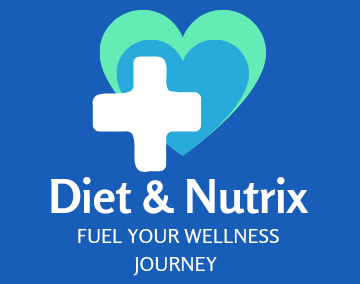The Ultimate Guide to a Protein-Rich Diet
Protein is a macronutrient that is absolutely needed for our bodies to function properly. It helps assemble and fix tissues, produces catalysts and chemicals, and is important for muscle development. Whether you’re a competitor, attempting to get in shape, or simply expecting to keep a reasonable eating routine, mixing sufficient protein into your feasts is critical. You will learn about the advantages of eating a protein-rich diet , the best sources of protein-rich diet, and practical suggestions for including more protein in your daily routine in this comprehensive guide.
Why a Protein-Rich Diet is Important
Protein is vital to the body’s structure and function. Here’s why a protein-rich diet is beneficial:
- Muscle Growth and Repair: Protein is necessary for the repair and growth of muscle tissues. This is particularly important for athletes and those who engage in regular physical activity.
- Weight Management: High-protein diets can help you feel fuller for longer, reducing overall calorie intake and aiding in weight loss.
- Metabolic Boost: Protein has a higher thermic effect compared to fats and carbohydrates, meaning your body burn more calories digesting protein.
- Supports Immune Function: Proteins are crucial for the production of antibodies and immune system cells, helping to keep you healthy.
- Hormone Production: Protein helps in the production of hormones that regulate various functions in the body.
Top Protein Sources
Including a variety of protein sources can help you meet your nutritional needs. Here are some excellent options:
Animal-Based Proteins:
- Lean Meats: Chicken, turkey, and lean cuts of beef and pork are rich in protein and low in fat.
- Fish and Seafood: Salmon, tuna, and shrimp provide high-quality protein and essential omega-3 fatty acids.
- Dairy Products: Greek yogurt, cottage cheese, and milk are excellent sources of protein and calcium.
- Eggs: A versatile protein source that can be included in many dishes.
Plant-Based Proteins:
- Legumes: Beans, lentils, and chickpeas are rich in protein and fiber.
- Nuts and Seeds: Almonds, chia seeds, and flaxseeds provide protein and healthy fats.
- Whole Grains: Quinoa, farro, and barley offer protein along with complex carbohydrates.
- Soy Products: Tofu, tempeh, and edamame are high in protein and can be used in various recipes.
Sample Protein-Rich Meal Plan
Here’s a simple and balanced high-protein meal plan to help you get started:
Breakfast:
- Scrambled Eggs with Spinach: Cook two eggs with a handful of fresh spinach.
- Greek Yogurt with Berries: Add a cup of Greek yogurt topped with mixed berries for added protein and antioxidants.
Mid-Morning Snack:
- Protein Smoothie: Blend a scoop of protein powder with a banana, a handful of spinach, and almond milk.
Lunch:
- Grilled Chicken Salad: Mix grilled chicken breast with mixed greens, cherry tomatoes, cucumbers, and a light vinaigrette.
- Quinoa: Add a side of cooked quinoa for an extra protein boost.
Afternoon Snack:
- Hummus and Veggies: Serve hummus with carrot sticks, celery, and bell pepper slices.
Dinner:
- Baked Salmon: Serve with a side of steamed broccoli and sweet potato.
- Lentil Soup: A hearty bowl of lentil soup to add more plant-based protein.
Evening Snack:
- Cottage Cheese: Top a small bowl of cottage cheese with pineapple chunks for a sweet and savory treat.
Tips for Increasing Protein-Rich Diet
- Start with Protein: Begin your day with a high-protein breakfast to kickstart your metabolism and keep you full.
- Incorporate Protein in Every Meal: Ensure each meal contains a source of protein, whether it’s animal-based or plant-based.
- Snack Smart: Choose protein-rich snacks like nuts, seeds, and Greek yogurt.
- Use Protein Supplements: If you find it challenging to meet your protein needs, consider incorporating protein shakes or bars.
- Cook in Bulk: Prepare protein-rich meals in bulk, such as grilled chicken or lentil soup, to save time and ensure you always have a healthy option available.
Addressing Common Questions About Protein-Rich Diets
Q: How much protein do I need daily?
A: The recommended dietary allowance (RDA) for protein is 0.8 grams per kilogram of body weight. However, your needs may vary based on your activity level, age, and health goals. Athletes and those looking to build muscle may need more.
Q: Can a high-protein diet help with weight loss?
A: Yes, high-protein diets can help with weight loss by promoting satiety, reducing overall calorie intake, and boosting metabolism.
Q: Are there risks associated with high-protein diets?
A: While most people can safely consume higher amounts of protein, it’s essential to balance your diet with other nutrients. Excessive protein intake can strain the kidneys, especially in individuals with pre-existing kidney conditions.
Q: What are some high-protein vegan options?
A: Great vegan protein sources include legumes, tofu, tempeh, edamame, nuts, seeds, quinoa, and whole grains.
Conclusion
A protein-rich eating routine offers various medical advantages, from supporting muscle development and fix to helping with weight the executives and supporting digestion. You can easily meet your nutritional requirements and support your overall health by incorporating a variety of protein sources and adhering to a balanced meal plan.
For more tips and personalized advice on nutrition, visit Diet and Nutrix
More Related Topics





